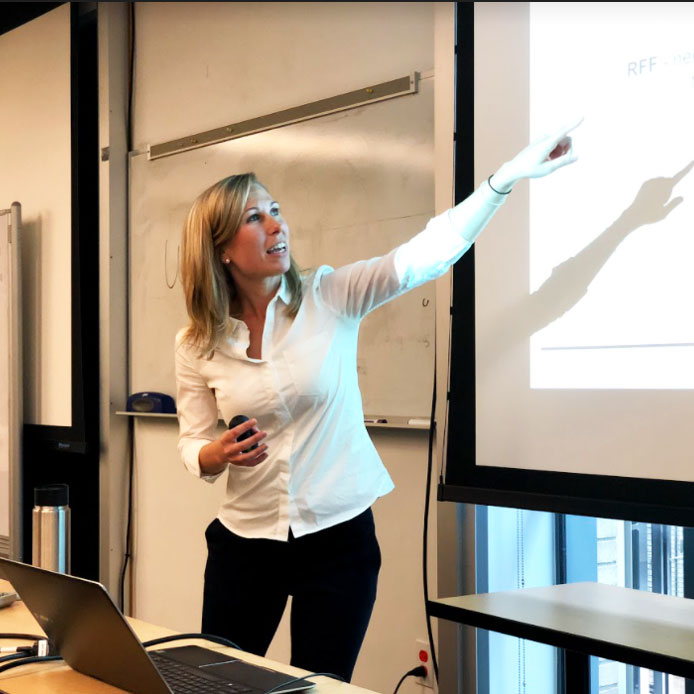|
In celebration of Women's History Month, the Department of Aerospace Engineering is highlighting some of our talented and diverse alumni and faculty through a series of stories sharing their journeys and their advice for aspiring aerospace engineers.
Alumna Elaine Petro ('10, M.S. '15, Ph.D. '19) is an Assistant Professor in the Cornell Sibley School of Mechanical and Aerospace Engineering and the director of the Cornell ASTRA Lab. Her research interests include spacecraft electric propulsion, sustainable space exploration through in-situ resource utilization, and plasma science.
Petro received her Ph.D. from the University of Maryland, College Park, where she studied water-based plasma propulsion. During her time at Maryland, she was recognized by Aviation Week Network as one of Tomorrow’s Engineering Leaders: The 20 Twenties and received both an Amelia Earhart Fellowship from Zonta International and a National Science Foundation Fellowship.
Prior to joining the faculty in Cornell MAE, she spent time as post-doctoral researcher in the Massachusetts Institute of Technology Space Propulsion Laboratory, studying electrospray thrusters for small satellite propulsion.
How did you get started on your Aerospace Engineering journey?
As a kid, seeing rocket launches in Florida and visiting NASA Goddard inspired my aerospace engineering journey, and I came to UMD to study Aerospace Engineering as freshman in 2006.
Who inspires you?
The professors at UMD and Dr. Alison Flatau, who was my first female engineering professor. Now it is the students I work with, especially through Women in Aeronautics and Astronautics (WIAA) and Women of Aeronautics and Astronautics (WoAA).
 What has helped you succeed in your Aero journey? What has helped you succeed in your Aero journey?
I have had a lot of amazing mentors. At UMD, Drs. Wereley and Sedwick along with Mary Snitch from Lockheed Martin through her relationship with the department as well as other peers in the program.
Outside of UMD, I had a lot of opportunities including the Zonta organization through my Amelia Earhart fellowship, the ARCS organization through my Lockheed Martin fellowship and my National Science Foundation fellowship.
What advice would you offer to current students?
Grades only measure limited dimensions of intelligence. The skills you hone through projects and clubs will be equally valuable to your future careers.
What have been some of your greatest personal/professional successes?
Completing the Ph.D. program at UMD was so much more than just research, and included leadership opportunities, learning how to become ra esearch mentor and overcoming the many challenges that come with completing the degree.
Completing my postdoctoral appointment at MIT where I built experiments for CubeSat demos and learned a whole new field.
March 29, 2022
|

